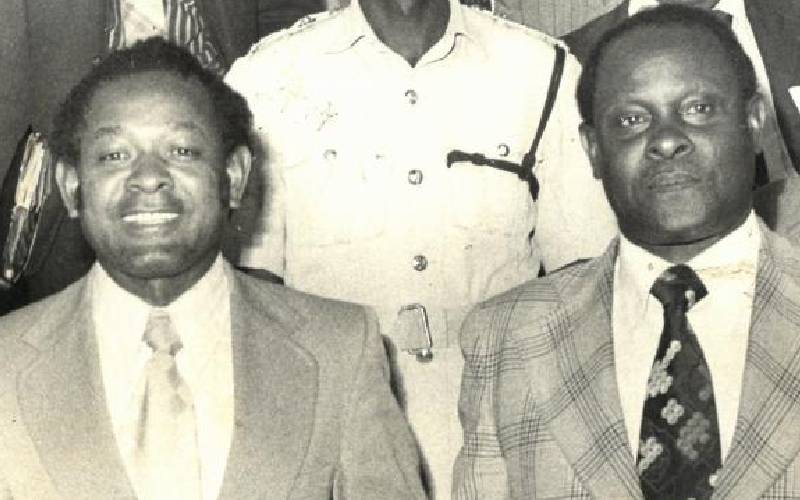×
The Standard e-Paper
Join Thousands Daily

MPs Jesse Gachago (left) and Muhuri Muchiri when they were charged with smuggling coffee, October 1977. [File, Standard]
Attorney General Charles Njonjo threatened to resign if action was not taken against known coffee smugglers.